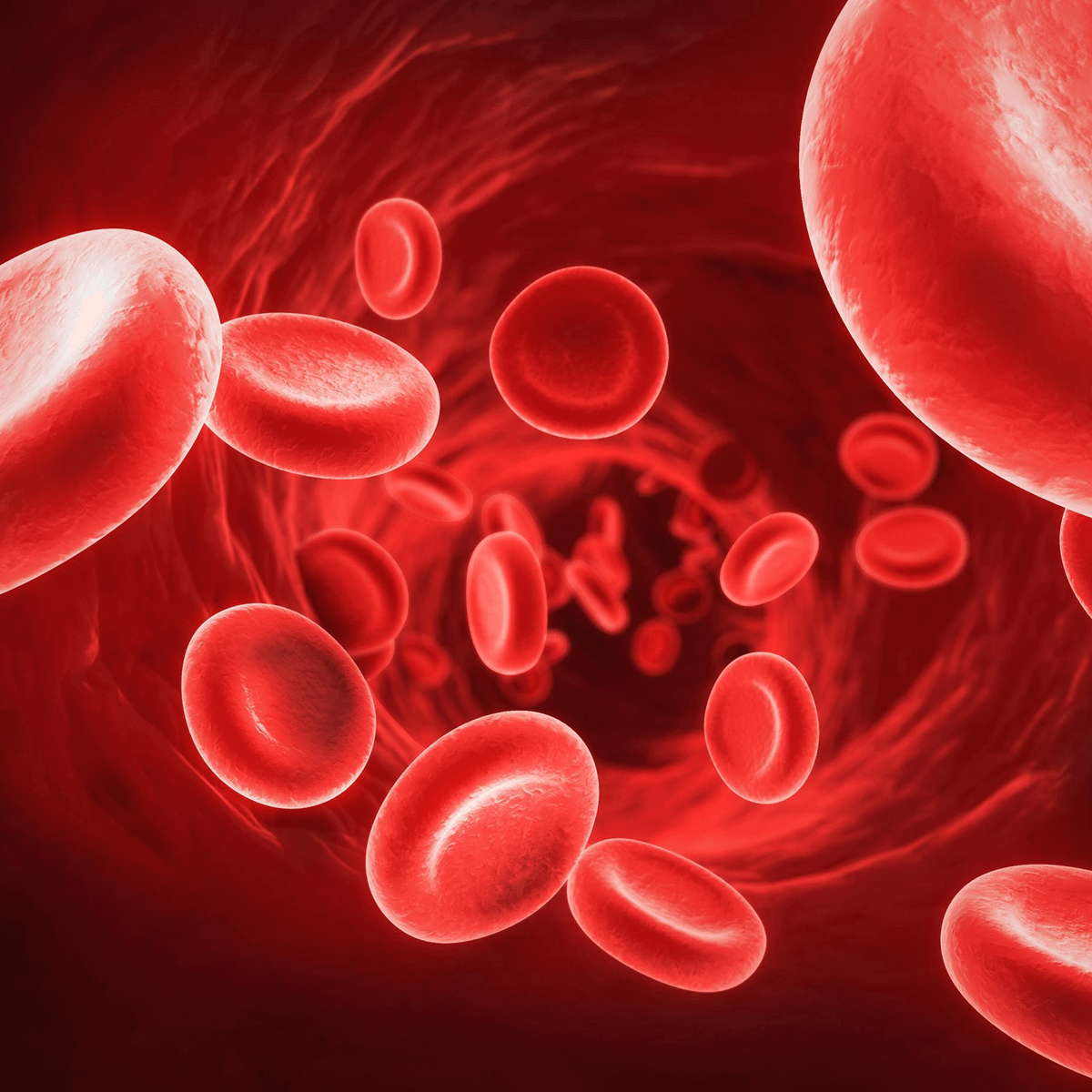Let's Talk About Iron Deficiency After Bariatric Surgery
Lifestyle
October 14th, 2020

You might workout at the gym and pump iron a few times a week, but your body pumps iron continuously through the bloodstream every day. Iron is needed to make hemoglobin, a part of red blood cells that acts like an Uber driver for carbon dioxide and oxygen. It locates oxygen in the lungs, drives it through the bloodstream, and releases it off in tissues including the skin and muscles. It then picks up the carbon dioxide and drives it back to the lungs where it's exhaled.
What is iron deficiency?
Iron deficiency after bariatric surgery occurs when the body doesn't absorb enough iron needed to perform daily functions. You might be deficient and not even know because symptoms appear only when iron deficiency has progressed to iron deficiency anemia, a condition in which the body's iron stores are low enough that a sufficient amount of normal red blood cells cannot be made to carry oxygen efficiently throughout the body. Iron deficiency is one of the most common nutritional deficiencies in the United States, and it's the leading cause of anemia. Those who have had bariatric surgery are at great risk of developing an iron deficiency due to restriction, malabsorption, or a combination of the two.
What are the main causes of an iron deficiency?
There are many reasons as to why a person might become iron deficient. We know that bariatric surgery changes the way your body absorbs vitamins and minerals from food.
Eating too little iron over an extended amount of time can cause a shortage in your body. After bariatric surgery, your body might have trouble digesting and absorbing iron from food. Iron deficiency can occur after any bariatric procedure, despite routine supplementation.
Not absorbing enough iron from food or supplements can lead to a deficiency. Bariatric surgery can reduce the level of stomach acids that break down foods making it more challenging to absorb the iron from the food you eat. When you combine this with rerouting the intestines where most of the iron is absorbed, which occurs in a Roux-en-Y gastric bypass (RYGB), or Biliopancreatic Diversion with Duodenal Switch (BPD/DS), this makes it harder for your body to absorb, leading to a deficiency.
Bleeding in your digestive tract can be a cause of an iron deficiency. Some people develop ulcers after bariatric surgery and chronic blood loss from the ulcer can cause anemia.
Not getting enough folic acid and vitamin B-12 can also cause anemia. Having bariatric surgery limits the amount and types of food that can be consumed, making sufficient amounts of vitamins and minerals an absolute must post-operatively, to prevent deficiencies.
What are the common signs/symptoms of an iron deficiency?
Iron deficiency can occur after any bariatric procedure, despite routine supplementation. A few symptoms of an iron deficiency include fatigue, pale skin, weakness, koilonychia (spoon shaped nails), brittle nails, dizziness, headache, glossitis (inflamed tongue), cold hands and feet, chest pain and pica (unusual craving for non-nutritive substances).
What is the American Society for Metabolic and Bariatric Surgery (ASMBS) guideline for iron?
The ASMBS guideline for iron is dependent upon a few factors: surgery type, gender, age, and history of (h/o) anemia. Males and patients without a h/o anemia need 18mg of iron from a multivitamin. Menstruating females and patients who have undergone Roux-en-Y gastric bypass (RYGB), Sleeve Gastrectomy (SG), or Biliopancreatic Diversion with Duodenal Switch (BPD/DS) need 45-60mg of elemental iron daily (cumulatively, including iron from all vitamin and mineral supplements). Oral supplementation should be taken in divided doses separately from calcium supplements, acid-reducing medications and foods high in phytates or polyphenols.
Vitamin C supplementation may be added to increase iron absorption and decrease the risk of iron overload. Intravenous (IV) iron infusions should be administered if iron deficiency does not respond to oral therapy.
How is iron deficiency anemia diagnosed and treated?
Iron deficiency can occur after any bariatric procedure, despite routine supplementation. Routine laboratory testing post bariatric surgery to asses for iron deficiency should include a complete blood count, ferritin, iron concentration, and total iron binding capacity that is used to calculate transferrin saturation. Clinical signs and symptoms should also be considered in cases where a deficiency is suspected. Routine screening is recommended within 3 months after surgery, then every 3–6 moths until 12 months, and annually thereafter for all patients.
Depending on your iron levels, you may be able to make some changes to your diet to raise your iron stores. However, most patients will need to take a supplement. How much to supplement with oral iron will be provided by your healthcare provider. They may recommend a certain type of iron that you can absorbed more easily than typical forms that are over-the-counter (OTC).
Supplementation should be increased to provide 150–200 mg of elemental iron daily to amounts as high as 300 mg 2–3 times daily. Oral supplementation should be taken in divided doses separately from calcium supplements, acid-reducing medications, and foods high in phytates or polyphenols. Vitamin C supplementation may be added to increase iron absorption and decrease risk of iron overload. For some, iron supplements will not be enough. Intravenous (IV) iron infusion should be administered if iron deficiency does not respond to oral therapy.
What can I do to prevent iron deficiency after gastric bypass surgery?
Having your laboratory test completed on a regular basis is key. After bariatric surgery, your healthcare provider will need to monitor your iron levels and other nutrients for the rest of your life, typically on an annual basis. Iron deficiency and anemia years or even decades after your gastric bypass surgery can occur. Red meat, poultry, seafood, leafy greens, legumes, iron-fortified grains, and other iron-fortified foods are all good sources of iron from food.
Working with a registered dietitian (RD) to find the right iron supplementation plan for you and to watch your food intake after surgery is in your best interest. The RD can provide a road map to keep you on track with the best foods and supplements to consume to prevent deficiencies. Taking a daily vitamin and mineral supplement, that meet the ASMBS guidelines post bariatric surgery to prevent anemia and other nutritional problems is vital to your long-term success.
References:
Camaschella C. Iron deficiency anemia. New England Journal Medicine. 2015; 372:1832.
Iron 45 mg + Vitamin C Soft Chews, Cherry Burst

$14.99
Celebrate 45 mg Iron + vitamin C soft chews are specially formulated to address the needs of post-bariatric patients. A delicious and effective solution, these bariatric iron chews are packed with 45mg of iron and 60mg of vitamin C to… read more


